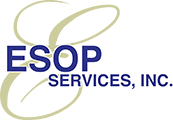April 17, 2003
Congressman Cass Ballenger (R-NC), a long-time ESOP Champion who has proposed pro-ESOP legislation for more than a decade, has teamed with Congressman Dana Rohrabacher (R-CA), another long-time ESOP Champion, to push Congress to establish a Presidential Commission on Employee Ownership.
The Employee Ownership for the 21st Century Act, or HR 1778, was introduced on April 11. Two important members of the House Committee on Ways and Means, highly regarded for their expertise in retirement savings issues and the nature of the 21st Century workforce, signed on as co-sponsors to HR 1778. The support of Congresswoman Nancy Johnson (R-CT) and Congressman Rob Portman (R-OH), senior members of Congress, gives an important endorsement to The ESOP Association’s leadership.
Congressman Ballenger is the third-ranking member of the House Committee for Education and the Workforce, which has jurisdiction over the Department of Labor. Ballenger’s is thus a key voice on the Committee that is charged with considering tomorrow’s workplace, and the welfare of employees in a free enterprise economy. Congressman Rohrabacher, also a senior member of Congress, has since 1999 taken the boldest positions to promote employee-owned and employee-controlled corporations, including being the first person to suggest a Presidential Commission on Employee Ownership.
Most important is the ground-breaking approach Mr. Ballenger takes in who HR 1778 mandates to serve on the Presidential Commission; three non-management employee owners, three executives of employee-owned companies, three representatives from non-profits dedicated to employee ownership issues, and three academics knowledgeable about employee ownership. There would be three government-affiliated members of the Commission: one representative from the Department of Treasury, one representative from the Department of Labor, and one representative from the Office of Management and Budget.
In addition to a Presidential Commission, HR 1778 also calls for a General Accounting Office study of the regulatory and policy positions of federal agencies which often hinder the creation of more ESOPs.
